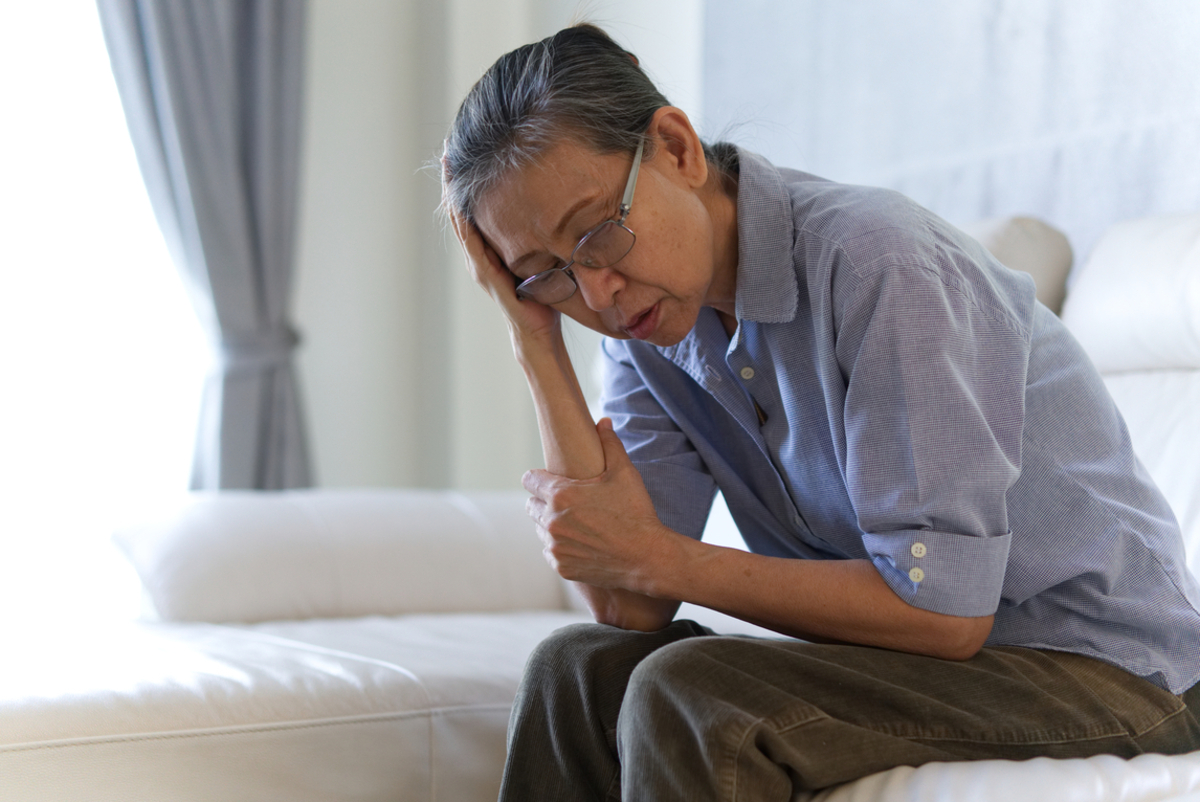Over a quarter of people who had a stroke will become depressed afterwards, many in the three months after they were hospitalized, a very large-scale study revealed. While depression is already pretty common the the general population, there's little doubt that people who suffer strokes are at a much higher risk.

Depression and stroke: What's the connection?
A stroke is an acute event in which the blood flow to the brain is disrupted or reduced. While most strokes are ischemic strokes, which occur when the arteries that supply the brain are blocked or narrowed, hemorrhagic strokes are less common. In a hemorrhagic stroke, a blood vessel within the brain bursts or leaks. Either way, brain cells can die in the process, leading to permanent consequences that can range from mild to severe.
A variety of factors likely conspire to lead to the increased risk of depression seen in stroke patients:
- Research has shown that people who suffered a major stroke are more likely to become depressed than those who had a mild stroke. This could indicate that the fact that a stroke can rob people of the independence, cognitive, and physical abilities is one major reason stroke patients develop depression. This phenomenon, called "reactive depression", is depression as a result of, for lack of a craftier way to say it, objectively unpleasant circumstances.
- A stroke can also, however, lead to major brain changes that are known to change the way in which some people experience emotions. This brain damage, too, can contribute to a person's risk of depression.
- Furthermore, we know that the way in which a stroke victim's immediate social circle reacts to the patient's situation can also have an impact. People with supportive relatives and friends — as well as healthcare providers — who assist them in constructive ways as they recover or adjust to life after a stroke tend to have better mental health outcomes.
How is depression after stroke diagnosed?
Major depressive disorder in stroke patients is diagnosed just like it would be in anyone else. That is, by examining whether the person meets all the diagnostic criteria. These diagnostic criteria include of a set of nine symptoms, of which at least five should be present including either or both of the first two. There's more to them, however — to be diagnosed with depression, the symptoms you experience musn't be better attributable to another cause or better fit another diagnosis.
Because it's pretty normal to feel low after experiencing a potentially fatal health emergency that can permanently change your life, and depression is diagnosed when your symptoms go beyond what is expected in your circumstances, depressed feelings right after a stroke won't necessarily lead to a diagnosis of major depressive disorder. If they continue for longer, adjustment disorder with depressed mood — situational depression, basically — may also be an alternative diagnosis.
Additionally, diagnosing doctors have to watch out for the possibility that the person they're assessing for depression isn't depressed, but simply has a diminished capacity to express their feelings after their stroke.
Having said that, recognizing a lot of the symptoms of depression in yourself should definitely lead you to make a doctor's appointment, especially if you've been feeling this way for two weeks or longer (which is also required for diagnosis). Here they are:
- A "depressed mood" — feeling sad, low, empty, tearful, pessimistic, and in some cases also irritable or angry.
- Losing interest in activities that used to mean something to you, including normal daily activities.
- Changes in sleep patterns. You may have insomnia or want to sleep a lot of the day.
- Extreme tiredness and loss of energy.
- A physical slowing down or speeding up that can be seen by others.
- Weight loss due to lowered appetite, or weight gain caused by overeating.
- A negative self-image, as demonstrated by feelings of guilt or worthlessness that are not realistic or appropriate for your situation.
- Lack of focus and indecisiveness.
- Being plagued by repeated, invasive, thoughts about death or suicide — beyond simply fearing you'll die.
How is depression treated in people who have suffered a stroke?
The treatment options include antidepressants and talk therapy, but also other interventions.
Antidepressants can be an option in people who have suffered a stroke, but doctors should be careful about which antidepressants they choose and follow the patient's progress and side effects. Antidepressants have the potential to interact with other medications you may be taking, and they can cause side effects like dizziness that are especially detrimental to stroke patients, who already have a higher risk of suffering falls.
Talk therapy can help patients process the life changes that followed their stroke, as well as being very effective in treating mild to moderate depression — as shown by countless studies. Cognitive behavioral therapy is a popular choice, but interpersonal and psychodynamic therapy can also help.
Other interventions that can help people who become depressed after a stroke include regular exercise programs especially designed for them as part of their recovery. Occupational therapy, which can help stroke victims recover some of their independence, can also do a great deal to lift the mood. A supportive social circle and well-coordinated healthcare team are especially important for people who are recovering from both stroke and depression.
- American Psychiatric Association. (2013). Diagnostic and statistical manual of mental disorders (5th ed.). Arlington, VA
- Photo courtesy of SteadyHealth


Your thoughts on this